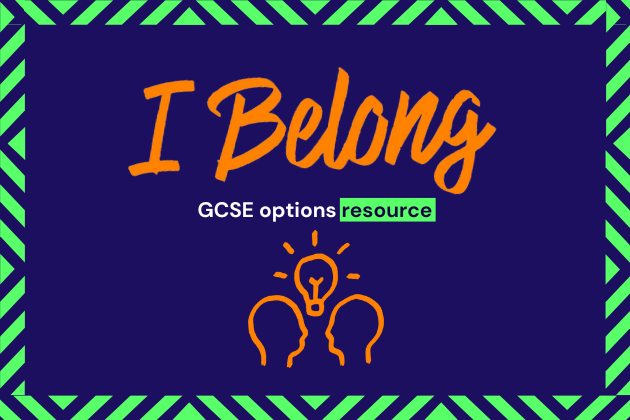How can you encourage more girls through your GCSE options process?
12 December 2023

'I Belong' has been working with teachers to help them prepare for upcoming GCSE option events in their schools. We’ve created a guidance booklet on the GCSE options process to encourage more students, particularly girls, to consider choosing it as one of their option subjects.
Why is this important?
Despite its popularity, boys consistently outnumber girls in computer science, the STEM field with the fastest growth. In 2023, male students accounted for four out of every five GCSE Computer Science entries and 85% of all A-level Computer Science entries in England.
Unfortunately, many girls do not consider computing-related subjects viable career options. Research suggests that feeling like they do not belong in the subject or community, a lack of sustained encouragement, and a lack of computing role models when learning the subject may be factors.
How can the option process be made more inclusive?
The subjects chosen for GCSE have an impact on students' future careers. However, the Gender Balance In Computing (GBIC) research study showed that option booklets and evenings influence students' perceptions and choices. These materials help students and their families understand computer science, which may affect their GCSE choices, so small presentation details may influence girls' subject choices.
What can you do to increase equity in computing?
1. Use inclusive language:
Challenge gendered language: The GBIC study highlighted the impact of complex and masculine language in computer science option booklets. Modify resources, especially the options booklet, to ensure language is gender-neutral and accessible.
Familiar, non-technical language: Use language that makes the subject more approachable for all students.
2. Amplify Diverse Voices:
Include student perspectives: Engage students in the review process of option booklets, ensuring diverse perspectives and student voices from students currently studying GCSE computer science.
Showcase Female Role Models: Feature quotes and experiences from female near-peers, university students, and those pursuing apprenticeships. This provides relatable examples of success in computer science.
3. Promote engagement and awareness:
Highlight enjoyable challenges: Showcase activities where girls have excelled. Share experiences from challenges like CyberFirst Girls, Bebras, or other team-based competitions that promote a supportive environment.
Utilise Bebras Data: Identify talent, increase family engagement, and boost girls' self-efficacy during option events with the data and measures of success from this year’s Bebras challenges.
4. Broaden career perspectives:
Present a range of career pathways: Share diverse social and creative career options in teaching units. This helps students, especially girls, visualise the multitude of paths available within computer science.
Connect with Local STEM Ambassadors: Get involved with your local STEM Ambassador Hub and connect with computing ambassadors. Collaborate to bring contemporary role models alongside historical figures into the classroom, enriching the curriculum with diverse, relatable role models.
Are you enrolled on the I Belong programme?
Our evidence-informed programme aims to help teachers and leaders understand the barriers to girls’ participation in computer science and make a plan to overcome them. We offer curated resources, training and implementation support to empower you with the tools to support more girls into computer science qualifications and careers.
About the author:
Claire Garside and Pam Jones are both Gender and Inclusion Specialists for the National Centre for Computing Education